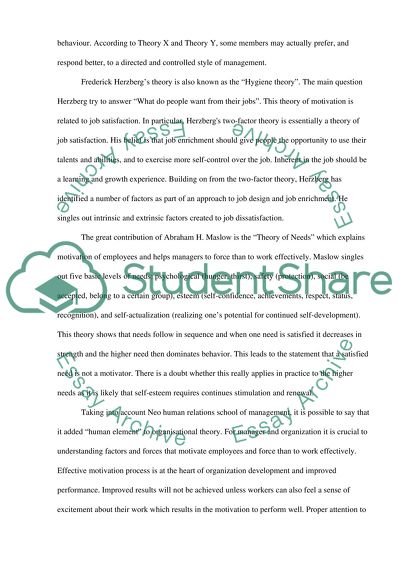Retrieved from https://studentshare.org/miscellaneous/1501412-describe-the-contribution-of-the-neo-human-relations-school-of-management-to-the-development-of-organisational-theory
https://studentshare.org/miscellaneous/1501412-describe-the-contribution-of-the-neo-human-relations-school-of-management-to-the-development-of-organisational-theory.


